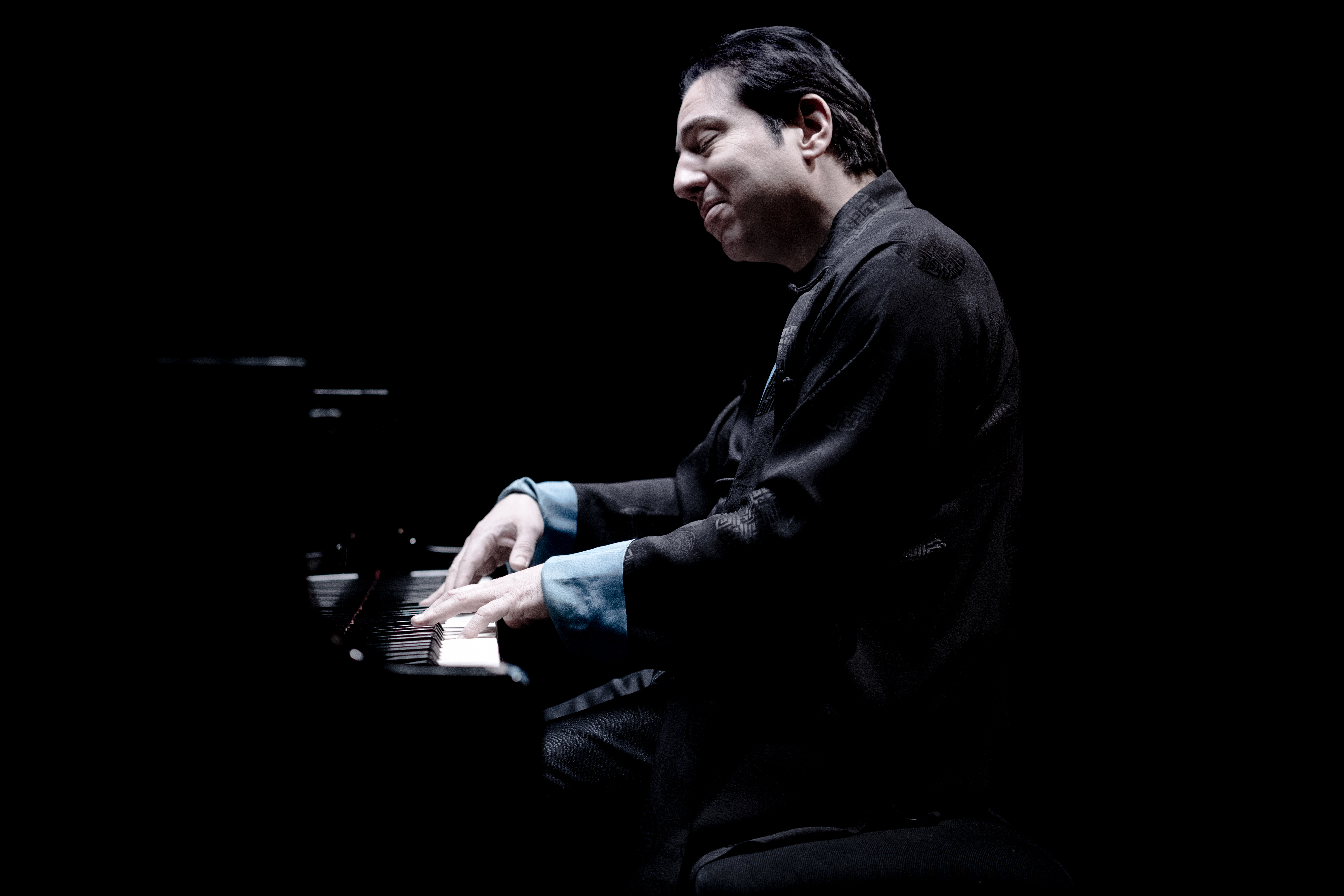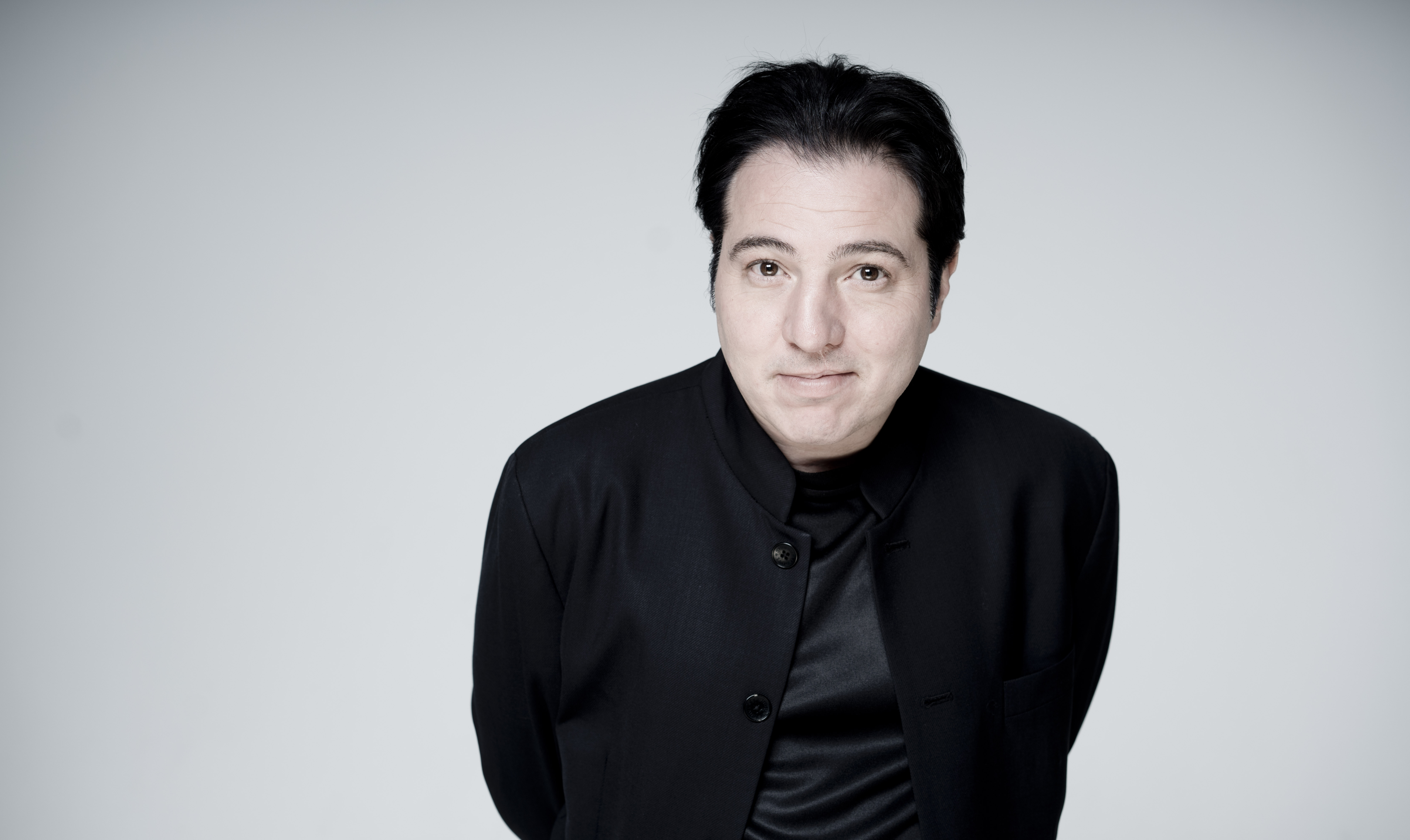Concerts avec Fazıl Say
8 - 13 Mars 2022

Overview
Vous trouverez-ci-dessous plus d’informations sur ce projet en Anglais:
With a concert featuring Fazıl Say on 11 March the Chamber Orchestra of Europe (COE) will assume its role as the new orchestra-in-residence at the Esterházy Palace in Eisenstadt. The COE was selected by a group of six world-renowned musicians and cultural managers in a multistage process. The residency is for a period of three years during which the Orchestra will undertake at least four concert projects per year in the Haydnsaal of the Esterházy Palace. The concerts will be performed both for the HERBSTGOLD-Festival and for the concert series classic.Esterhazy. In this context, an extensive audiovisual partnership has been formed between the COE, the Esterházy Palace and medici.tv, the world’s leading classical music channel. All of the COE’s concerts in Eisenstadt will be streamed live on medici.tv, with on-demand replays available to audiences worldwide. The concert will be repeated at the recently opened Isarphilharmonie in Munich on 12th March.
For more details on the COE’s residency, please click here.
On 11th March, the programme includes Haydn, Mozart and Beethoven and also features the Turkish pianist-composer Fazıl Say playing his own Yürüyen Köşk (The Moving Mansion), accompanied by the COE strings. This concert will be raising funds for Ukraine and here is a statement from the Esterházy Private Foundation:
« The current events in Ukraine are deeply shocking and the need for help is enormous. The Esterházy Private Foundation would therefore like to offer the opportunity to donate to Ukraine at the opening concert of the classic.Esterhazy concert series. The musicians of the Chamber Orchestra of Europe, which will begin its engagement as the new resident orchestra at Esterházy Palace with this concert, belong to a wide variety of nationalities and are a prime example of how music is a language of peaceful coexistence and unites cultures through dialogue.
Half of all proceeds from the concert will go to the organisations « Neighbours in Need » and « Doctors without Borders ». We also cordially invite you to support the fundraising campaign for Ukraine in order to set a common sign for peace. For this purpose, donation boxes will also be set up on site on the evening of the concert. If you prefer to donate online, please follow these links: https://nachbarinnot.orf.at or https://www.aerzte-ohne-grenzen.at. »
Watch on medici.tv
You can watch the concert live in Eisenstadt on 11th March at 7pm GMT on our medici.tv embedded player:

Fazıl Say
Fazıl Say was born in 1970. He was a child prodigy, who was able to do basic arithmetic with 4-digit numbers at the age of two. His father, having found out that he was playing the melody of « Daha Dün Annemizin » (Turkish version of Ah! vous dirai-je, maman) on a makeshift flute with no prior training, enlisted the help of Ali Kemal Kaya, an oboist and family friend. At the age of three, Say started his piano lessons under the tutelage of pianist Mithat Fenmen.
Say wrote his first piece – a piano sonata – in 1984, at the age of fourteen, when he was a student at the Conservatory of his home town Ankara. It was followed, in this early phase of his development, by several chamber works without an opus number, including Schwarze Hymnen for violin and piano and a guitar concerto. He subsequently designated as his opus 1 one of the works that he had played in the concert that won him the Young Concert Artists Auditions in New York: the Four Dances of Nasreddin Hodja (1990). This work already displays in essence the significant features of his personal style: a rhapsodic, fantasia-like basic structure; a variable rhythm, often dance-like, though formed through syncopation; a continuous, vital driving pulse; and a wealth of melodic ideas that may often be traced back to themes from the folk music of Turkey and its neighbours. In these respects, Fazıl Say stands to some extent in the tradition of composers like Béla Bartók, George Enescu, and György Ligeti, who also drew on the rich musical folklore of their countries. He attracted international attention with the piano piece Black Earth, Op. 8 (1997), in which he employs techniques made popular by John Cage’s works for prepared piano.
After this, Say increasingly turned to the large orchestral forms. Taking his inspiration from the poetry (and the biographies) of the writers Nâzım Hikmet and Metin Altıok, he composed works for soloists, chorus and orchestra which, especially in the case of the oratorio Nâzim, Op. 9 (2001), clearly take up the tradition of composers such as Carl Orff. In addition to the modern European instrumentarium, Say also makes frequent and deliberate use in these compositions of instruments from his native Turkey, including kudüm and darbuka drums and the ney reed flute. This gives the music a colouring that sets it apart from many comparable creations in this genre. In 2007 he aroused international interest with his Violin Concerto 1001 Nights in the Harem, Op. 25, which is based on the celebrated tales of the same name, but deals specifically with the fate of seven women from a harem. Since its world premiere by Patricia Kopatchinskaja, the piece has already received further performances in many international concert halls.
Fazıl Say scored a further great success with his first symphony, the Istanbul Symphony Op. 28 (2009), premiered in 2010 at the conclusion of his five-year residency at the Konzerthaus Dortmund. Jointly commissioned by the WDR and the Konzerthaus Dortmund in the framework of Ruhr. 2010, the work constitutes a vibrant and poetic tribute to the metropolis on the Bosporus and its millions of inhabitants. The same year saw the composition, among other pieces, of his Divorce String Quartet, Op. 29, (based on atonal principles), and commissioned works like the Piano Concerto Nirvana Burning, Op. 30, for the Salzburg Festival and a Trumpet Concerto for the Mecklenburg-Vorpommern Festival, premiered by Gábor Boldoczki.
For Sabine Meyer Say has also written a Clarinet Concerto, Op. 36 (2011), that refers to the life and work of the Persian poet Omar Khayyam in response to a commission from the 2011 Schleswig-Holstein Musik Festival, and a Sonata for clarinet and piano (op. 42) for the Festival Kissinger Sommer in 2012. Fazıl Say’s works are issued worldwide by the renowned music publishers Schott Music of Mainz.
In his works Gezi Park 1,2 and 3 (op. 48, op. 52, op. 54) from 2013/14 he musically processed the violent suppression of the protests at the Istanbul Gezi Park.
The lyrics for his song Insan Insan were taken from a centuries-old poem written by Alevi poet Muhyiddin Abdal. The track was orchestrated by Say with vocals from Selva Erdener (soprano), Burcu Uyar (coloratura soprano), Güvenç Dağüstün (baritone) and Cem Adrian (« ethnic vocals »).